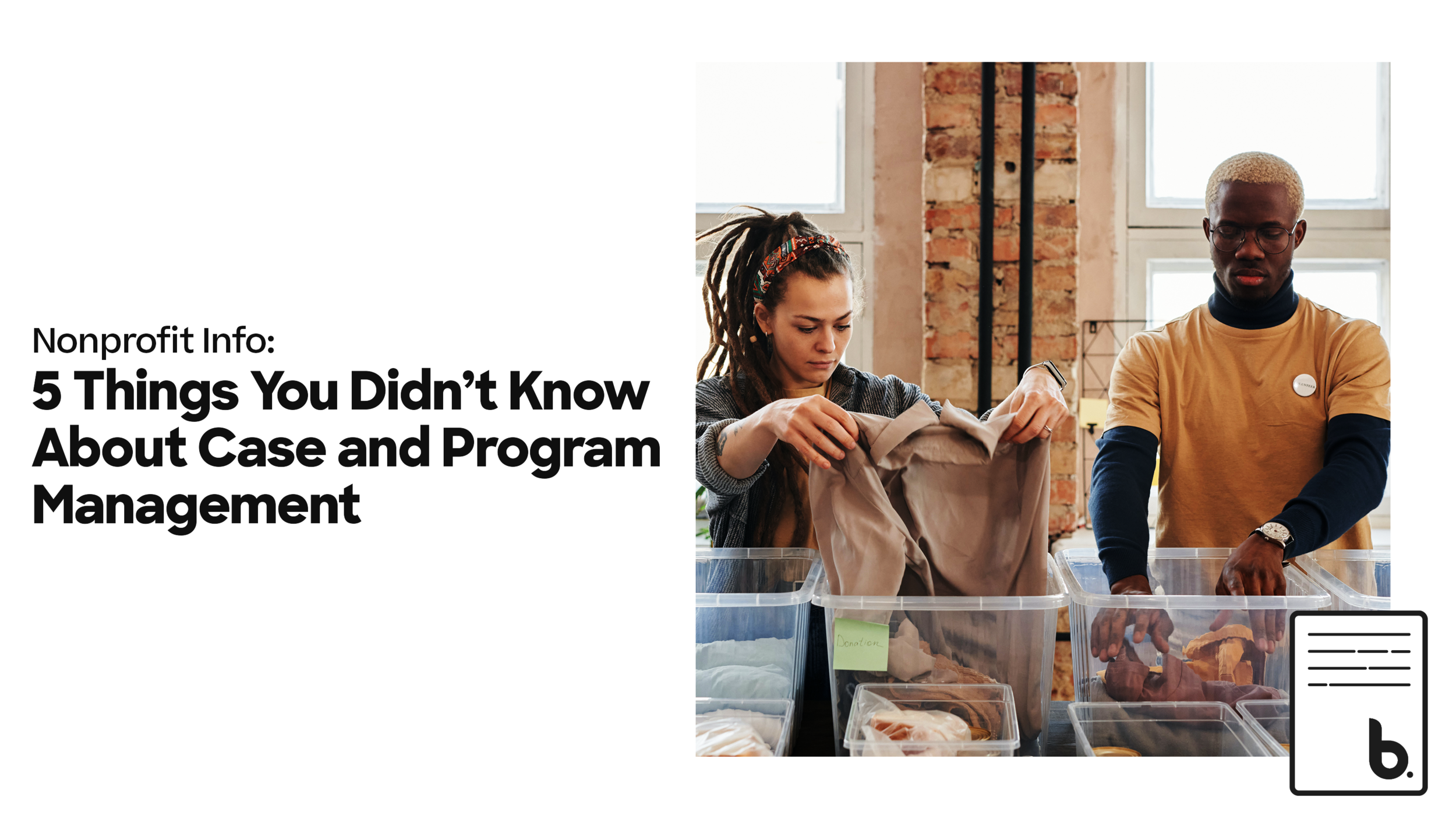5 Things You Didn’t Know About Salesforce Nonprofit Case Management
Salesforce Nonprofit Case Management can be useful to your nonprofit organization by centralizing processes, providing an easy and efficient reporting process, and overall allowing your organization to focus on impact instead of tedious administrative duties. However, we recognize that this may be a new product to many organizations. To help you learn more, here are a few things you didn’t know about Nonprofit Case Management:
Are there discounts on Salesforce products for nonprofit organizations?
Yes! Salesforce.org provides heavily discounted licensing for nonprofit organizations to enable you to leverage best in class technology. Many Salesforce customers start their Salesforce journey with the Nonprofit Success Pack (NPSP). This provides solutions to help manage your income streams (fundraising), inbound grants and programs in one place. Your first 10 subscriptions are free as part of our Power of Us Program. Any additional costs are to be discussed with your account manager.
Do I need to be tech savvy to use Salesforce?
You don’t need to be tech savvy to use Salesforce. One of the best things about the Salesforce system is the endless resources we can provide to clients who want to learn. For example, Trailhead is Salesforces’ free learning resource. It’s modular and provides hands on learning. We also recognize that change management is crucial to any digital transformation project. Once we engage with you in this project, we don’t walk away and leave you on your own. To ease the technology transition, we make sure there is sufficient training and robust documentation to best equip you for success.
Is Salesforce HIPPA compliant?
Yes it is! Health Insurance Portability and Accountability Act (HIPPA) refers to set of standards and procedures created to ensure sensitive Client health information is protected. This refers to physical storage of data, the network, and process security measures. Salesforce does comply with HIPAA rules to its capacity as a business associate. There are additional steps and safeguards that the organization must take to ensure they are HIPAA regulated entities, but Salesforce as a platform can be configured to meet these standards. Additional security services can be purchased from Salesforce (i.e. SF Shield) and the platform can be customized to allow you to select which information to display.
Is Salesforce customizable?
One of the main features that differentiate Salesforce from other CRMs is the customizability and flexibility. Other CRMs may confine you to the way the platform was built, which is great for performing set processes and procedures, but what happens when your org has a process that doesn’t fit well within the CRM solution? Sometimes you may be able to customize the CRM platform, but a lot of the time it isn’t possible. Salesforce really shines in that you can build onto the system any way you want. Salesforce is an out-of-the-box best practice platform that you can customize to best meet your organization’s needs. It gives the ability for non-developer users (individuals with no coding knowledge) to extend the platform to facilitate other business processes.
Does Salesforce Nonprofit Case Management save resources?
Yes! The main resources it saves are time and money. When paper forms are filled out manually, there is the risk of human error. Addressing these errors also duplicates efforts and limits your ability to serve more individuals. In terms of cost, there can be significant cost efficiencies within the referral and intake process. By having case management, you’re able to obtain more qualified data, reduce administrative burden and increase the ability to focus on your services. By saving time and money, it allows you to make an even larger impact!
If you would like to learn more about case management and how it can benefit your nonprofit organization, click below to get in touch with our case management experts.







